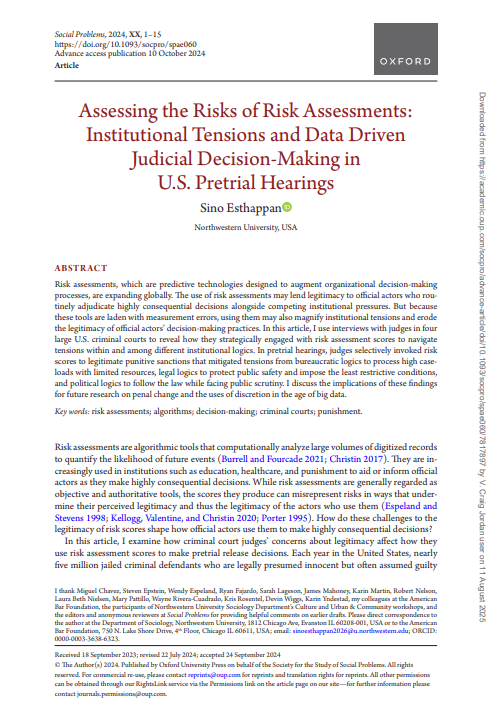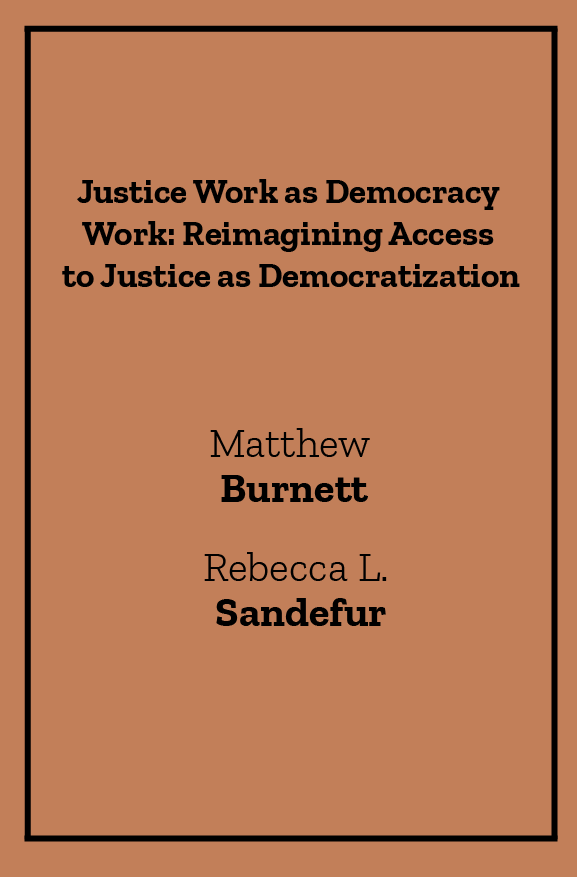Recent Research Publications
Displaying 12 Results Out of 293

- Newsletters
Our Court: A New History of the United States Supreme Court
Fall 2025
Christopher W. Schmidt

- Books
Speaking for the Dying Life-and-Death Decisions in Intensive Care
2019
Susan P. Shapiro

- Books
Court on Trial: A Data-Driven Account of the Supreme Court of India
July 2023
William H. J. Hubbard, Aparna Chandra and Sital Kalantry

- Articles
Assessing the Risks of Risk Assessments: Institutional Tensions and Data Driven Judicial Decision-Making in U.S. Pretrial Hearings
October 2024
Sino Esthappan

- Articles
The Policing Machine: Enforcement, Endorsements, and the Illusion Of Public Input
June 2025
Sino Esthappan

- Articles
Justice Work as Democracy Work: Reimagining Access to Justice as Democratization
July 2025
Matthew Burnett, Rebecca L. Sandefur, , Rebecca L. Sandefur and

- Articles
Crypto Fever: Law, Regulation, and the Promise of Trustless Trust
June 2025
Susan P. Shapiro

- Chapters
The Rule of Law is Fragile: The Importance of Legitimacy and Access
March 2025
Stephen Daniels and Joanne Martin

- Books
Governing the Global Clinic: HIV and the Legal Transformation of Medicine
Carol A. Heimer

- Videos
Shaping the Future of Sociolegal Research: ABF Doctoral and Postdoctoral Fellowships
2025
Mark C. Suchman, Anna Reosti, Ewurama Okai and Sino Esthappan

- Reports
People-Centered Access to Justice Research: A Global Perspective
2023
Matthew Burnett, Rebecca L. Sandefur, Julia Dos Santos Drummond, , , , , Rebecca L. Sandefur and

- Articles
A People-Centered Approach to Designing and Evaluating Community Justice Worker Programs in the United States
2024
Matthew Burnett and Rebecca L. Sandefur
